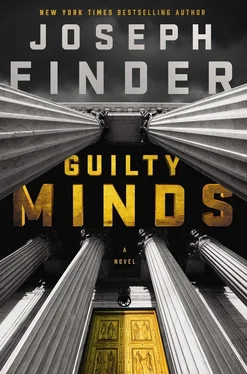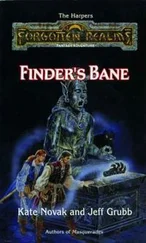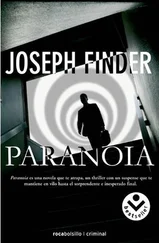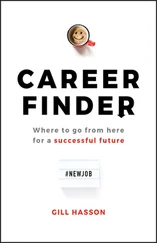I considered telling him about the watcher, the ex-DC cop, but decided to hold that back until I’d figured out whether the guy, Curtis Schmidt, was there to protect her or to monitor her. Also, I had more interesting news to give him.
“Whoever’s setting up Claflin is good. They had someone check into the Hotel Monroe under his name with a fake ID and credit card. But we found a hole in the setup. No one actually entered the room. They checked in but never stayed there.”
“Really? You can prove this?”
“Yes. That should be enough to jettison their story.”
There was a long pause. “I don’t think so,” Gideon said at last. “It’s subtle. Too subtle.”
“You think?”
“We need to determine who’s behind this. Who’s doing it. When we hit back, we need to hit back hard. We need to be as thorough as possible. We need to show those gossip mongers what a giant fraud this whole thing is.”
I sighed. Actually, he was right. The fact that no one checked into a room was enough to discredit the story in a court of law, but not in the court of public opinion. In real journalism, but not in gossip. Slander Sheet operated in the world of perception, not the legal system.
“Well, we still have time,” I said. “A little over twenty-two hours, by my watch. When’s your interview with the reporter?”
“I’m seeing Ms. Seeger tomorrow morning at nine A.M.”
“I thought we had until tomorrow at five.”
“That’s when they press the button and the story goes live. Unless we disprove it before then. My deal with them, the way I bought forty-eight hours, was I’d give them an interview. And by the way, I’ll want you present for that.”
“Of course. But I want to talk to Seeger before that. Like tonight, if possible.”
“I’m not so sure that’s a good idea.”
“I need to size them up. See what else she’s got.”
“Then be my guest. But be careful. These Slander Sheet people, they’re scorpions.”
Another call was coming in. After the 202 area code, the first three digits of the phone number were 224, which told me it was a Senate phone number. I said good-bye to Gideon and took the second call.
“Nick, it’s Kelly again.”
“Hi, Kelly.”
“The senator’s had a cancellation in his schedule. If you can get over to his hideaway office in the next fifteen minutes, I can get you in to see him before his dinner with constituents.”
I looked at my watch. It was seven o’clock. More like bourbon o’clock, for Senator Brennan. “How’s he doing — I mean, you know, this late in the day?”
Her reply sounded a little stiff. She knew what I was asking — how drunk was the guy? — but she was still the protective, and discreet, staff member. “He’s had nonstop meetings this afternoon, so he should be okay.” Meaning he hadn’t had a chance to take a nip, presumably. Though I wondered whether Pat Brennan carried a hip pocket flask around during the day. It wouldn’t surprise me. She gave me directions. I thanked her and hung up.
Senator Pat Brennan’s hideaway office was on the third floor of the Capitol building, behind an unmarked door. I would never have been able to find it if the senator hadn’t dispatched an aide, a pretty young redhead, to meet me at security and take me through marble hallways and up winding staircases, through several locked doors.
All senators have hideaway offices in addition to their offices in the Senate office buildings nearby. Some are nicer than others. Some are cramped little closets. They’re given out based on seniority. They’re generally used for quick meetings, a place to escape the press of business, avoid reporters, take naps. During Prohibition, some senators used them as speakeasies. Lyndon Johnson used to invite young women in to “take dictation,” as he called it, in his hideaway. Most senators insist on keeping the location of their hideaways secret from all but their closest aides.
Senator Brennan opened the door himself. He was in shirtsleeves, his bow tie askew. He was a tall, chubby man with stooped shoulders, a ruddy face with a pixielike expression, a high domed forehead, and a shock of white hair that was usually mussed.
“Nicholas Heller!” he boomed. “Good Lord, how long has it been?”
“A couple of years, Senator.”
“In this office, I’m Pat. Please.”
I nodded. “Thanks for taking the time, Pat.”
“I bagged my evening fund-raising calls, which is an obligation I detest, so I should thank you . Come, come.”
He put a hand on my shoulder and escorted me in. I could smell the liquor on his breath. Based on the fluidity of his speech, his articulation, I concluded he was still on his first bourbon. Which was good. He was normally coherent through his first two or three drinks.
His hideaway office was one long and narrow room with a high arched ceiling. A marble fireplace, built-in bookcases, a bathroom; and, in one corner, a bar with a mini-fridge, where he led me.
“You, my friend, get the good stuff,” he said. “Pappy Van Winkle twenty-year-old Family Reserve.”
“I’m honored.”
He glugged a couple of fingers of bourbon into two glasses and handed one to me. Then he clinked his glass against mine. “In the words of Horace, fecundi calices quem non fecere disertum ?” He paused, and then translated. “Whom have flowing cups not made eloquent?”
Brennan was a former professor of government at Harvard who’d served in the White House as adviser to the president and was later elected senator from Massachusetts. He was a classics major at Harvard, was erudite, and was obviously not shy about showing it off. The more he drank, it seemed, the more Latin he spoke.
He was also Jeremiah Claflin’s biggest champion. He’d pushed for Claflin’s nomination to the US Court of Appeals. Later, he’d lobbied the White House for Claflin’s appointment to the Supreme Court. They’d been Harvard colleagues — Claflin at the law school — and friends, and Brennan had quarterbacked his confirmation process in the Senate.
I took a sip. “Excellent,” I said. It was bourbon, it tasted fine, and it was no doubt wasted on me.
I’d done a job for Senator Brennan a few years back, when I was with Stoddard Associates in DC. He had a leaker on his staff who was causing him great damage. To make a long and complicated story short and simple, I smoked the traitor out.
He lowered himself heavily onto the corner of a yellow brocade sectional sofa next to a low table, and I sat in a chair facing him. “Let me get right to it,” I said. “I know your time is tight. I have to tell you something in absolute secrecy.” Though I’d signed an NDA, the urgent circumstances justified telling him, I decided. “Cone of silence, right?”
He put up his palms like a priest conferring a benediction. “ Sigillum confessionis ,” he said. “The seal of the confessional.”
Then I told him about the Slander Sheet story on Claflin.
“Oh, dear God,” he said when I finished, and he took a swig. He looked out the window. The view of the Washington Monument and the National Mall was postcard-perfect. “Slander Sheet. I detest that website with every fiber of my being.”
“Everyone does, but everyone reads it just the same.”
“It’s funny, Nicholas. Everything old becomes new again. Our republic had slander sheets even before it had newspapers. They were mudslingers, that’s all. Every printer belonged to a political faction, and they put out gazettes that endlessly circulated lies about their opponents. Defamation sluiced through those pages like sewage. Adams was declared a bugger, and Madison a spy, and Jefferson — what was it now? — was supposedly keeping a slave mistress!”
Читать дальше












